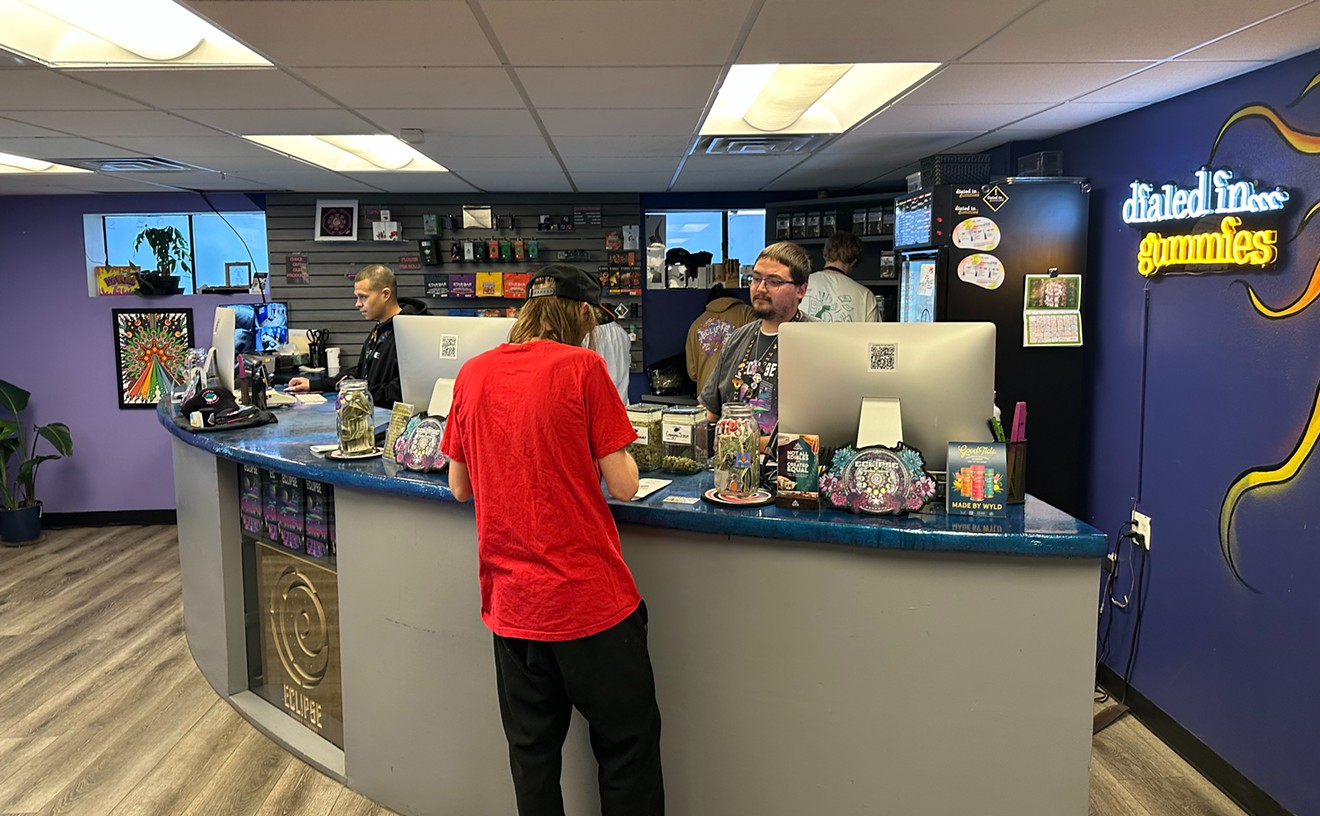“Sustainability is important in every sector of every type of economy, and we are proud that Colorado set a good bar for the cannabis industry," said Governor Jared Polis during a visit to the 2019 Cannabis Sustainability Symposium.
But the symposium's organizer, the Cannabis Certification Council, is always looking for ways to shrink the new industry's environmental impact. Held Friday, October 4, the annual conference hosted industry executives, sustainability advocates and business owners to learn more about what they can do to create a sustainable future for cannabis, and how to start planning for the future today.
Polis, who's no stranger to the cannabis industry, said he's looking forward to seeing how new state social consumption licenses, which will be legal in 2020, will further shape the cannabis industry's role in sustainable pot use. According to the governor, one way to cut down on public consumption and its environmental impact is to make sure cannabis users can consume safely in a social sphere with proper devices, ventilation and waste receptacles.
“We have to set the standard for sustainability in every industry, including cannabis,” he told the crowd.
Although this was the fourth rendition of the symposium, it featured a new award ceremony for sustainable cannabis businesses. Two Colorado brands came out on top, with Smokey’s 420 and Native Roots dispensary chains taking first and second, respectively, for “holistic method with resource management,” according to the symposium. Oregon cannabis cultivator Siskiyou Sungrown won third place.
While there have been strides in advocating for sustainability across the cannabis industry, keynote speaker Dr. Rachel Knox of the American Cannabinoid Clinic noted in her speech that the industry still has a long way to go.
According to Knox, the plant's stigma and aggressive capitalism can affect how consumers view the plant, leading to a narrow view of the cannabis industry. That narrow view can also extend to regulators, she added.
“If you don’t understand what you’re regulating, you have a high chance of over-regulating,” she says. “Over-regulation is rooted in fear that cannabis is a vice, and has prohibited advancement in science and research. But there are many health effects THC can actually boost.”
Knox went on to say that the solution is looking at the big picture when building for sustainability, starting with science first. Focusing on the four pillars of sustainability — humanity, society, economy and environment — can lead to an ecosystem that focuses on a balance of consumer health and capitalism, she said.
However, regulators must first establish more accountability within the industry, which carries varying laws and rules from state to state, she added.
"Anyone with any authority about cannabis must develop cannabis competency,” Knox explained. “We must humble ourselves, trust one another, advocate and understand the four pillars of total sustainability."
But the onus is not all on the regulators. Energy and water use, waste management and building plans can all seriously affect a business's carbon footprint. According to Emu Systems co-founder Mariana Pickering, the entire production process needs to be viewed as a whole.
“We talked about this before the panel, and we all said it needs to be holistic,” Pickering said during a panel discussion about sustainable design. “We have to break it down into steps that are achievable.”
However, panel members agreed that cannabis sustainability standards still need time to grow, as there are no definite or universal guidelines yet. But that can also sprout innovation, added Nicole Delmage, owner of cannabis business architecture firm MerJ Architecture.
“If an owner has a set idea, everything begins to target toward something achievable,” she said.
[
{
"name": "Air - MediumRectangle - Inline Content - Mobile Display Size",
"component": "12017618",
"insertPoint": "2",
"requiredCountToDisplay": "2"
},{
"name": "Editor Picks",
"component": "17242653",
"insertPoint": "4",
"requiredCountToDisplay": "1"
},{
"name": "Inline Links",
"component": "18838239",
"insertPoint": "8th",
"startingPoint": 8,
"requiredCountToDisplay": "7",
"maxInsertions": 25
},{
"name": "Air - MediumRectangle - Combo - Inline Content",
"component": "17261320",
"insertPoint": "8th",
"startingPoint": 8,
"requiredCountToDisplay": "7",
"maxInsertions": 25
},{
"name": "Inline Links",
"component": "18838239",
"insertPoint": "8th",
"startingPoint": 12,
"requiredCountToDisplay": "11",
"maxInsertions": 25
},{
"name": "Air - Leaderboard Tower - Combo - Inline Content",
"component": "17261321",
"insertPoint": "8th",
"startingPoint": 12,
"requiredCountToDisplay": "11",
"maxInsertions": 25
}
]











